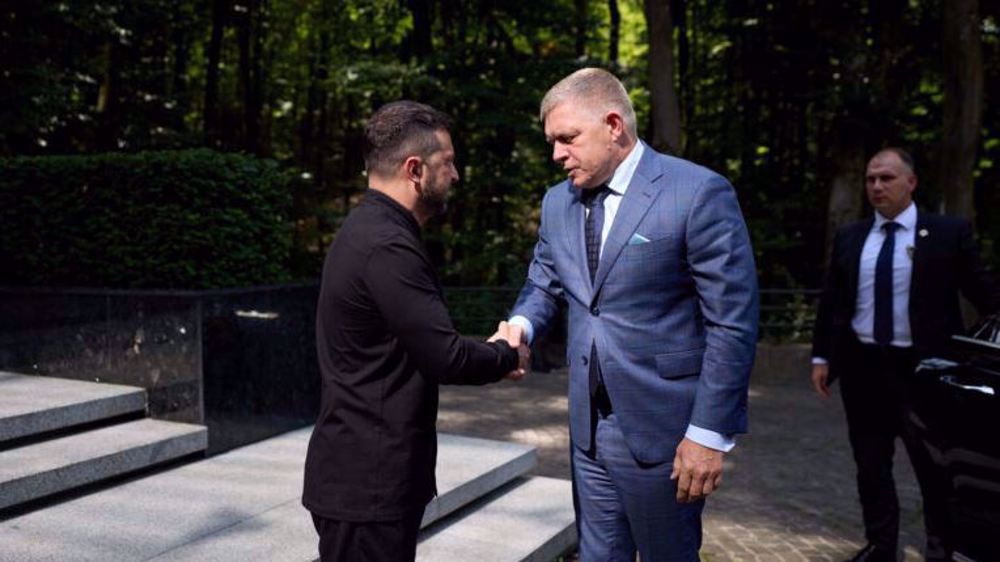Palmyra at 23th Mediterranean Exchange of Archaeological Tourism
Max Civili
Press TV, Paestum
The 23th Mediterranean Exchange of Archaeological Tourism has wrapped up in Paestum, a site in central-southern Italy recognized by UNESCO as part of the World Cultural Heritage.
The three-day initiative aimed to promote sites and destinations of great archaeological value and increase business opportunities. Some 100 conferences and meetings took place during the international event that has seen the participation of more than 150 exhibitors from 15 countries.
Syria was among them, with a stand presenting the current state of the Palmyra World Heritage Site, in the Homs province, after the destruction by Daesh.
In 2015, Daesh militants seized the modern town of Palmyra first and then ancient ruins nearby. The militants initially promised to leave the site’s columns and temples untouched. However, those promises went on to be unfulfilled.
Daesh attacked Palmyra's archaeological sites with bulldozers and explosives until 2016. The region of Palmyra was then freed from Daesh by a coalition of Syrian, Russian, and Iranian military forces.
During the Mediterranean Exchange of Archaeological Tourism, an International Archaeological Discovery Award for the most valuable discovery of the year was assigned. The award is named after Khaled al-Asaad, the archaeologist of the site of Palmyra who was brutally murdered by Daesh for trying to protect the cultural heritage.
Iran FM says school massacre in latest Israeli aggression ‘will not go unanswered’
Iran’s retaliatory attack completely destroys sophisticated US radar system in Qatar
US-Israeli aggression violates UN Charter; Iran will defend homeland: Foreign Ministry
US-Israeli 'regime change' project in Iran 'impossible mission': FM Araghchi
IRGC Navy pounds US MST ship with a volley of missiles after Israeli-US aggression
Iran’s retaliatory attacks will continue uninterruptedly: Senior commander
Saudi Arabia lobbied for UAE sanctions: Trump
IRGC launches missile, drone strikes against Israel in response to US-Israeli aggression









 This makes it easy to access the Press TV website
This makes it easy to access the Press TV website